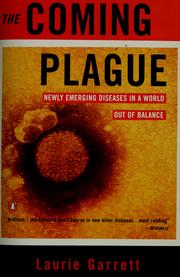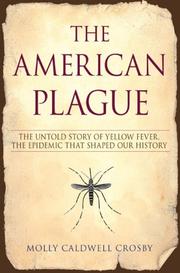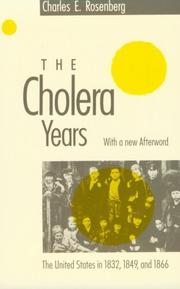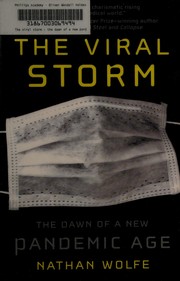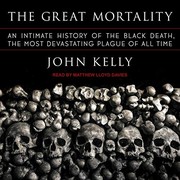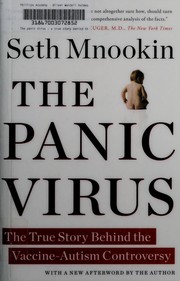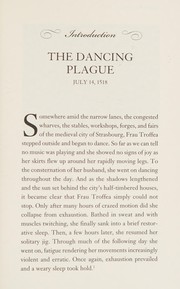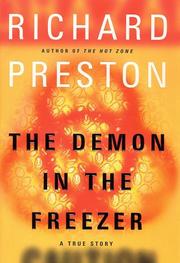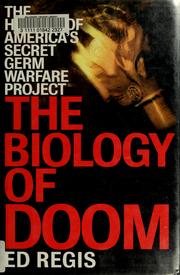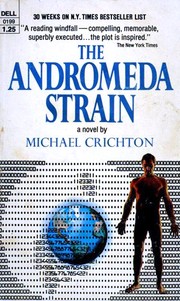Are you fascinated by the history of epidemics and pandemics? Do you find yourself drawn to stories of survival, resilience, and the human experience during times of crisis? If so, you’ll love our list of the 20 best books about epidemics. From historical accounts to fictional tales, these books offer a captivating exploration of the impact of infectious diseases on society. Whether you’re a history buff, a science enthusiast, or simply looking for a gripping read, there’s a book on epidemics for everyone on this list. Let’s dive in and discover the most compelling epidemics books of all time!
Contents
- 1 20 Best Books About Epidemics
- 2 The Great Influenza
- 3 Spillover: Animal Infections and the Next Human Pandemic
- 4 The Hot Zone
- 5 Pale Rider: The Spanish Flu of 1918 and How It Changed the World
- 6 The Ghost Map
- 7 The Pandemic Century: One Hundred Years of Panic, Hysteria, and Hubris
- 8 The Coming Plague: Newly Emerging Diseases in a World Out of Balance
- 9 The American Plague: The Untold Story of Yellow Fever, the Epidemic That Shaped Our History
- 10 The Cholera Years: The United States in 1832, 1849, and 1866
- 11 The Fever: How Malaria Has Ruled Humankind for 500,000 Years
- 12 The End of Epidemics: The Looming Threat to Humanity and How to Stop It
- 13 The Viral Storm: The Dawn of a New Pandemic Age
- 14 The Great Mortality: An Intimate History of the Black Death, the Most Devastating Plague of All Time
- 15 The Panic Virus: A True Story of Medicine, Science, and Fear
- 16 The Dancing Plague: The Strange, True Story of an Extraordinary Illness
- 17 The Malaria Capers: Tales of Parasites and People
- 18 The Demon in the Freezer
- 19 The Biology of Doom: The History of America’s Secret Germ Warfare Project
- 20 The Plague
- 21 The Andromeda Strain
- 22 Conclusion
- 23
- 24 The 20 Artificial Intelligence Fiction Books: Best 2024 Update and Review
- 25 Reading List of Police Books – 2024 Update
- 26 Unveiling the Best The South Books in this 2024 Update
20 Best Books About Epidemics
The Great Influenza
by John M. Barry
The Great Influenza by John M. Barry is a gripping book about epidemics that delves into the devastating 1918 influenza pandemic. Barry expertly weaves together scientific, historical, and personal narratives to paint a vivid picture of the outbreak and its profound impact on society. The book offers a comprehensive exploration of the virus, the global response to the pandemic, and the individuals who played key roles in the fight against the disease. Barry’s compelling storytelling and in-depth research make this epidemics book a must-read for those interested in the history of public health and the resilience of the human spirit in the face of crisis. The Great Influenza is a timely reminder of the importance of understanding and preparing for future global health threats.
Spillover: Animal Infections and the Next Human Pandemic
by David Quammen
Spillover: Animal Infections and the Next Human Pandemic by David Quammen is a captivating exploration of zoonotic diseases, offering a gripping account of the transmission of pathogens from animals to humans. Quammen delves into the interconnectedness of species and ecosystems, unraveling the intricate web of disease transmission and the potential for a global pandemic. Through vivid storytelling and in-depth research, the book sheds light on the origins of deadly viruses such as Ebola, SARS, and HIV, providing a compelling narrative of the complex dynamics underlying the emergence of epidemics. With its insightful analysis and engaging prose, Spillover is a must-read for anyone interested in understanding the intricate relationship between human health and wildlife, making it a standout book about epidemics in the realm of nonfiction literature.
The Hot Zone
by Richard Preston
The Hot Zone by Richard Preston is a gripping non-fiction book about epidemics that reads like a thriller. The book delves into the terrifying world of deadly viruses such as Ebola and Marburg, and the courageous individuals who risked their lives to contain these outbreaks. Through vivid storytelling and meticulous research, Preston paints a harrowing picture of the potential devastation that can be caused by these highly contagious and lethal diseases. The book takes readers on a heart-pounding journey from the African rainforests to the laboratories of the United States Army Medical Research Institute of Infectious Diseases, where scientists race against time to understand and contain the deadly pathogens. The Hot Zone is a captivating and thought-provoking exploration of the dangers posed by emerging epidemics and the heroic efforts to prevent global catastrophe.
Pale Rider: The Spanish Flu of 1918 and How It Changed the World
by Laura Spinney
Pale Rider: The Spanish Flu of 1918 and How It Changed the World by Laura Spinney is a captivating book about epidemics that delves into the devastating impact of the Spanish flu. Spinney explores the origins of the flu, its rapid spread, and the profound effect it had on society, politics, and medicine. Through meticulous research and compelling storytelling, she paints a vivid picture of the global upheaval caused by the pandemic and its lasting legacy. This epidemics book offers a thought-provoking analysis of how the Spanish flu reshaped the world and provides valuable insights into the dynamics of infectious diseases. Spinney’s narrative is both informative and gripping, making Pale Rider an essential read for anyone interested in understanding the far-reaching consequences of historical pandemics.
The Ghost Map
by Steven Johnson
The Ghost Map by Steven Johnson is a captivating book about epidemics that tells the gripping story of the 1854 cholera outbreak in London. Johnson explores the lives of Dr. John Snow and Reverend Henry Whitehead, who worked tirelessly to uncover the source of the deadly disease and prevent its spread. Through meticulous research and vivid storytelling, Johnson paints a vivid picture of the city’s crowded streets, unsanitary living conditions, and the devastating impact of the outbreak. The book delves into the history of urban planning, public health, and the scientific method, offering a fascinating look at how a community came together to combat a deadly threat. The Ghost Map is a compelling and thought-provoking read that sheds light on the complexities of epidemics and the resilience of the human spirit.
The Pandemic Century: One Hundred Years of Panic, Hysteria, and Hubris
by Mark Honigsbaum
The Pandemic Century by Mark Honigsbaum is a captivating book on epidemics that delves into a century’s worth of pandemics, exploring the panic, hysteria, and hubris that have surrounded these global health crises. Honigsbaum takes readers on a fascinating journey through the epidemics book, from the Spanish flu to the more recent outbreaks of SARS and Ebola, shedding light on the societal and political responses to these deadly diseases. With meticulous research and compelling storytelling, the author paints a vivid picture of how pandemics have shaped our world and our understanding of public health. This book about epidemics is a must-read for anyone interested in the history of infectious diseases and the human response to them.
The Coming Plague: Newly Emerging Diseases in a World Out of Balance
by Laurie Garrett
The Coming Plague: Newly Emerging Diseases in a World Out of Balance by Laurie Garrett is a comprehensive and thought-provoking book on epidemics, exploring the rise of new and reemerging infectious diseases. Garrett delves into the interconnected factors that contribute to the spread of these diseases, from globalization and urbanization to climate change and antibiotic resistance. Through engaging storytelling and in-depth research, the author provides a compelling overview of the challenges posed by epidemics and the urgent need for global cooperation in addressing them. With its insightful analysis and gripping narratives, this book about epidemics is a must-read for anyone interested in understanding the complex dynamics of infectious diseases and their impact on our world.
The American Plague: The Untold Story of Yellow Fever, the Epidemic That Shaped Our History
by Molly Caldwell Crosby
The American Plague by Molly Caldwell Crosby is a gripping book on epidemics that delves into the devastating impact of yellow fever on American history. Crosby presents a compelling narrative of the epidemic that ravaged cities and shaped the course of public health in the United States. Through meticulous research and vivid storytelling, she uncovers the untold story of this deadly disease, exploring its origins, spread, and the heroic efforts to combat it. The book provides a fascinating look at the social, political, and scientific implications of the epidemic, offering a valuable perspective on how epidemics have shaped our society. Crosby’s vivid and engaging writing style makes The American Plague a must-read for anyone interested in the history of epidemics and the resilience of the human spirit in the face of adversity.
The Cholera Years: The United States in 1832, 1849, and 1866
by Charles E. Rosenberg
The Cholera Years by Charles E. Rosenberg provides a compelling exploration of the impact of cholera outbreaks in the United States during the 19th century. This thought-provoking book about epidemics delves into the social, political, and medical responses to the 1832, 1849, and 1866 cholera pandemics, offering a fascinating glimpse into the ways in which these epidemics shaped American society. Through meticulous research and engaging storytelling, Rosenberg paints a vivid picture of the fear, confusion, and resilience that characterized these tumultuous periods. The book on epidemics also sheds light on the evolution of public health practices and the emergence of modern epidemiology. With its rich historical detail and thought-provoking analysis, The Cholera Years is a must-read for anyone interested in the intersection of medicine, society, and crisis management.
The Fever: How Malaria Has Ruled Humankind for 500,000 Years
by Sonia Shah
The Fever: How Malaria Has Ruled Humankind for 500,000 Years by Sonia Shah is a captivating exploration of the ancient and persistent battle between humans and malaria. Shah delves into the history, science, and impact of this relentless disease, tracing its evolution alongside human civilization. Through engaging storytelling and rigorous research, she reveals how malaria has shaped societies, influenced wars, and even impacted the course of human evolution. This book offers a fascinating perspective on the interplay between epidemics and human history, shedding light on the enduring struggle against infectious diseases. The Fever is a thought-provoking and informative read for anyone interested in the history of epidemics and the ongoing efforts to combat them.
The End of Epidemics: The Looming Threat to Humanity and How to Stop It
by Jonathan D. Quick
The End of Epidemics: The Looming Threat to Humanity and How to Stop It by Jonathan D. Quick is a compelling book about epidemics that explores the global threat posed by infectious diseases and offers practical solutions for preventing future outbreaks. Quick, a public health expert, provides a gripping account of past pandemics and outlines the key factors that contribute to the spread of infectious diseases. Through engaging storytelling and insightful analysis, the book sheds light on the urgent need for international cooperation and preparedness to combat the looming threat of epidemics. With a focus on practical strategies and real-world examples, The End of Epidemics is a must-read for anyone concerned about the potential impact of infectious diseases on humanity.
The Viral Storm: The Dawn of a New Pandemic Age
by Nathan Wolfe
The Viral Storm: The Dawn of a New Pandemic Age by Nathan Wolfe is a captivating book about the emergence and spread of infectious diseases. Wolfe, a renowned virologist, takes readers on a thrilling journey through the world of viruses, exploring their potential to cause global epidemics and pandemics. Through engaging storytelling and insightful analysis, the book delves into the fascinating history of epidemics, the science behind viral outbreaks, and the strategies for preventing and controlling them. Wolfe’s expertise and passion for the subject shine through as he sheds light on the interconnectedness of our modern world and the potential for new viral threats to emerge. The Viral Storm is a must-read for anyone interested in understanding the dynamics of infectious diseases and the impact they have on our world.
The Great Mortality: An Intimate History of the Black Death, the Most Devastating Plague of All Time
by John Kelly
The Great Mortality: An Intimate History of the Black Death, the Most Devastating Plague of All Time by John Kelly is a gripping book about epidemics that delves into the catastrophic impact of the Black Death in the 14th century. Kelly provides a detailed and intimate account of how the plague ravaged Europe, wiping out millions of people and changing the course of history. Through meticulous research and vivid storytelling, the author brings to life the horror and despair of the epidemic, offering a nuanced understanding of its social, economic, and cultural repercussions. The Great Mortality is a compelling epidemics book that sheds light on the human experience during one of the deadliest pandemics in history, making it a must-read for anyone interested in the intersection of disease and society.
The Panic Virus: A True Story of Medicine, Science, and Fear
by Seth Mnookin
The Panic Virus by Seth Mnookin is a gripping book about epidemics that delves into the controversial and emotional topic of vaccines. Mnookin explores the rise of the anti-vaccine movement and its impact on public health. He meticulously examines the history of vaccines, the science behind them, and the societal fears that have fueled vaccine skepticism. Through compelling storytelling, Mnookin sheds light on the consequences of misinformation and fear, ultimately challenging readers to reexamine their beliefs about vaccines and the importance of evidence-based medicine. The Panic Virus is a thought-provoking and timely exploration of the intersection of medicine, science, and public perception, making it a must-read for anyone interested in the ongoing debate surrounding vaccines and book on epidemics.
The Dancing Plague: The Strange, True Story of an Extraordinary Illness
by John Waller
The Dancing Plague: The Strange, True Story of an Extraordinary Illness by John Waller is a fascinating book about a mysterious and bizarre phenomenon that swept through a small French town in the 16th century. The book delves into the historical accounts of the strange dancing epidemic that affected hundreds of people, causing them to dance uncontrollably for days on end, often leading to exhaustion and even death. Waller meticulously examines the medical, psychological, and sociological aspects of this extraordinary illness, offering a captivating look into the human experience during times of epidemics. This gripping account sheds light on the inexplicable nature of the human mind and the impact of collective hysteria during times of crisis. The Dancing Plague is a must-read for anyone interested in the strange and unusual aspects of epidemics and human behavior.
The Malaria Capers: Tales of Parasites and People
by Robert S. Desowitz
The Malaria Capers: Tales of Parasites and People by Robert S. Desowitz is an engaging and insightful book about epidemics. Desowitz takes readers on a fascinating journey through the history of malaria, exploring the interactions between parasites and humans. Through a series of captivating stories, he delves into the scientific, cultural, and political aspects of the disease, shedding light on the impact it has had on societies around the world. Desowitz’s writing is both informative and entertaining, making this book a must-read for anyone interested in epidemiology, public health, or medical history. With its blend of storytelling and scientific research, The Malaria Capers is a compelling exploration of the complex relationship between parasites and people.
The Demon in the Freezer
by Richard Preston
The Demon in the Freezer by Richard Preston is a gripping nonfiction book that delves into the world of bio-terrorism and the threat of smallpox. Preston provides a chilling account of the eradication of smallpox and the potential for this deadly virus to resurface in today’s world. The book takes readers on a journey through the history of smallpox, the race to contain the virus, and the potential consequences if it were to be used as a weapon. With meticulous research and compelling storytelling, Preston sheds light on the dangers of biological warfare and the importance of vigilance in preventing the spread of deadly diseases. This book is a must-read for anyone interested in public health, infectious diseases, and the ongoing battle against global health threats.
The Biology of Doom: The History of America’s Secret Germ Warfare Project
by Ed Regis
The Biology of Doom: The History of America’s Secret Germ Warfare Project by Ed Regis is a gripping and chilling exploration of the United States’ covert germ warfare program. Regis delves into the sinister world of biological weapons, uncovering the disturbing history of America’s involvement in this lethal form of warfare. Through meticulous research and compelling storytelling, the author sheds light on the dark and often overlooked chapter of American military history. This book on epidemics is a cautionary tale that raises important ethical and moral questions about the use of biological agents as weapons of mass destruction. The Biology of Doom is a must-read for anyone interested in the history of biological warfare and the potential consequences of such deadly technologies. It is a thought-provoking and timely exploration of a topic that continues to pose significant threats to global security.
The Plague
by Albert Camus
The Plague by Albert Camus is a gripping novel that delves into the chaos and suffering caused by an outbreak of infectious disease in the Algerian city of Oran. The story follows Dr. Rieux and a handful of other characters as they grapple with the sudden emergence of a deadly plague, and the subsequent quarantine that isolates the city from the outside world. Camus’s powerful narrative explores the psychological and emotional toll of the epidemic on the citizens of Oran, as well as the moral and philosophical questions that arise in the face of such widespread suffering. This book about epidemics is a haunting reminder of the resilience of the human spirit in the face of unimaginable hardship, and a timeless exploration of the human condition in the midst of crisis.
The Andromeda Strain
by Michael Crichton
The Andromeda Strain by Michael Crichton is a gripping science fiction novel that delves into the terrifying possibilities of a deadly extraterrestrial microorganism. Set in a top-secret underground laboratory, the story follows a team of scientists racing against time to understand and contain the lethal organism before it wipes out humanity. This thrilling page-turner combines elements of mystery, suspense, and high-stakes scientific discovery, making it a must-read for fans of medical thrillers and apocalyptic tales. With its intense focus on the dangers of a deadly contagion and the race for a cure, The Andromeda Strain is a compelling and thought-provoking book on epidemics that will keep readers on the edge of their seats until the very end.
Conclusion
As we have explored, the 20 best books about Epidemics offer a diverse and comprehensive look at the impact of infectious diseases on society. From historical accounts to gripping narratives and scientific analyses, these books provide valuable insights into the human experience of dealing with epidemics. Whether you’re interested in the social, historical, or scientific aspects of pandemics, there is a book on this list that will surely pique your interest and deepen your understanding of this timely and important topic.
Which Epidemics book is best?
The best book on Epidemics can vary with personal preference, but three widely recommended titles are:
- The Great Influenza by John M. Barry,
- Spillover: Animal Infections and the Next Human Pandemic by David Quammen,
- The Hot Zone by Richard Preston.
Each offers valuable insights and could be a great starting point.
What are the best books to learn about Epidemics?
For those looking to learn about Epidemics, there is a wealth of literature that can provide a comprehensive understanding of the subject. Some of the most highly recommended books include:
- The Great Influenza by John M. Barry,
- Spillover: Animal Infections and the Next Human Pandemic by David Quammen,
- The Hot Zone by Richard Preston,
- Pale Rider: The Spanish Flu of 1918 and How It Changed the World by Laura Spinney,
- The Ghost Map by Steven Johnson,
- The Pandemic Century: One Hundred Years of Panic, Hysteria, and Hubris by Mark Honigsbaum,
- The Coming Plague: Newly Emerging Diseases in a World Out of Balance by Laurie Garrett,
- The American Plague: The Untold Story of Yellow Fever, the Epidemic That Shaped Our History by Molly Caldwell Crosby,
- The Cholera Years: The United States in 1832, 1849, and 1866 by Charles E. Rosenberg,
- The Fever: How Malaria Has Ruled Humankind for 500,000 Years by Sonia Shah
These books offer a range of perspectives on Epidemics, covering various aspects and approaches to the subject.
What are the best books on Epidemics?
The best books on Epidemics include:
- The Great Influenza by John M. Barry,
- Spillover: Animal Infections and the Next Human Pandemic by David Quammen,
- The End of Epidemics: The Looming Threat to Humanity and How to Stop It by Jonathan D. Quick,
- The Viral Storm: The Dawn of a New Pandemic Age by Nathan Wolfe,
- The American Plague: The Untold Story of Yellow Fever, the Epidemic That Shaped Our History by Molly Caldwell Crosby,
- The Pandemic Century: One Hundred Years of Panic, Hysteria, and Hubris by Mark Honigsbaum.
Each offers unique insights into the subject. While these books on the topic of Epidemics are highly regarded, it’s important to note that any list of ‘best’ books is subjective and reflects a range of opinions.
What are the best Epidemics books of all time?
Choosing the best Epidemics books of all time can vary depending on who you ask, but seven titles that are often celebrated include
- The Great Influenza by John M. Barry,
- Spillover: Animal Infections and the Next Human Pandemic by David Quammen,
- The Ghost Map by Steven Johnson,
- The American Plague: The Untold Story of Yellow Fever, the Epidemic That Shaped Our History by Molly Caldwell Crosby,
- The Fever: How Malaria Has Ruled Humankind for 500,000 Years by Sonia Shah,
- The Viral Storm: The Dawn of a New Pandemic Age by Nathan Wolfe,
- and The End of Epidemics: The Looming Threat to Humanity and How to Stop It by Jonathan D. Quick.
Each of these books has made a significant impact in the field of Epidemics and continues to be influential today.







